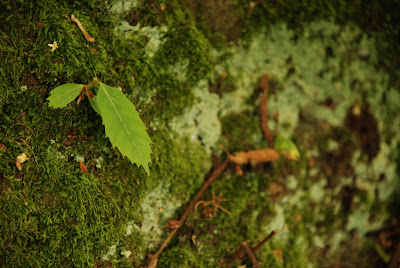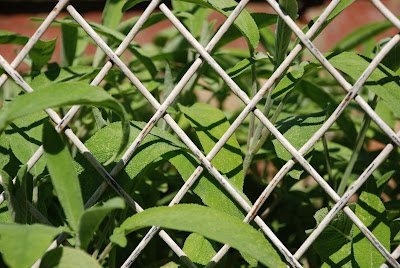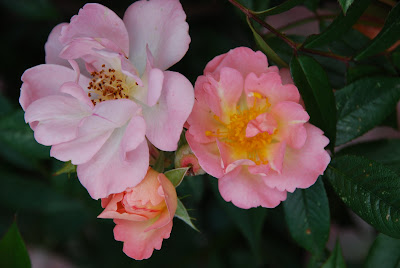
I reviewed this book for an academic journal. The reason why I put it here is because, despite the efforts of feminist economists and some political theorists, women's work remains marginalised in academic discourse. I am a very big fan of Tom Hodgkinson's 'How to Be Idle' and his website, 'The Idler', but there is a subversive voice in my head that keeps saying, "And what does his wife think of all this?" I imagine her sorting out the house and the kids whilst Tom is down the pub, idling. "Well, he's better off, there," she sighs, "At least I can get on with things without being interrupted by a lecture about Marx". Women weave together the threads of life and death, out of which come the stories which construct meaning in the world. Today, as many women migrate across the globe to do the work that nobody else wants to do, those stories have become ever more complex, and multi-layered. The danger inherent in Tom's philosophy of idling is that, whilst it generates a vital critique of capitalism, it may do so at the expense of reinforcing new kinds of alienation, ones which are manifested in the labour of women from developing countries. We return then to a very traditional self-sufficiency - one that sustained Aristotle in his advocacy of contemplation as the highest form of human excellence - slavery.
Here is my review which is written in academic-speak. It is no subsitute for reading the original.
‘Women’s Work’ as Political Art: Weaving and Dialectical Politics in Homer, Aristophanes, and Plato, by Lisa Pace Vetter.
Plato, the discursive feminist, is an unlikely figure. This book, however, makes an ingenious attempt to persuade us that Plato’s use of the metaphor of weaving has the resources to reconcile essentialist and post-structural approaches in feminist theory. In the ancient world, weaving is an indispensable female labour loaded with political, as well as social, significance. Weaving is a skill – a techne – associated with knowledge (p4), and invested with political meaning through the image of the weaving back and forth of disparate elements, resulting in a unity which either subsumes or maintains their distinctiveness. Vetter illustrates how the metaphor of weaving is employed in the dramatic narratives of Homer’s Penelope and Aristophanes’ Lysistrata. Penelope and Lysistrata ultimately fail to make the metaphor of weaving yield its full potential as a vehicle of political renewal through deliberation. Penelope’s emphasis on like-mindedness fails to unite a diverse group of citizens, whilst Lysistrata’s techne approach imposes peace at the price of an unsustainable homogeneity. Plato, however, confronts us with the surprising possibility of setting in place ‘a permanent dialectic between subjectivity and objectivity that is open to continual reinterpretation’ (p23). Vetter shows us that Plato’s characterisation of Socrates establishes a critical and self-reflective dialogue which can accommodate many viewpoints and modes of expression.
Plato, the discursive feminist, is an unlikely figure. This book, however, makes an ingenious attempt to persuade us that Plato’s use of the metaphor of weaving has the resources to reconcile essentialist and post-structural approaches in feminist theory. In the ancient world, weaving is an indispensable female labour loaded with political, as well as social, significance. Weaving is a skill – a techne – associated with knowledge (p4), and invested with political meaning through the image of the weaving back and forth of disparate elements, resulting in a unity which either subsumes or maintains their distinctiveness. Vetter illustrates how the metaphor of weaving is employed in the dramatic narratives of Homer’s Penelope and Aristophanes’ Lysistrata. Penelope and Lysistrata ultimately fail to make the metaphor of weaving yield its full potential as a vehicle of political renewal through deliberation. Penelope’s emphasis on like-mindedness fails to unite a diverse group of citizens, whilst Lysistrata’s techne approach imposes peace at the price of an unsustainable homogeneity. Plato, however, confronts us with the surprising possibility of setting in place ‘a permanent dialectic between subjectivity and objectivity that is open to continual reinterpretation’ (p23). Vetter shows us that Plato’s characterisation of Socrates establishes a critical and self-reflective dialogue which can accommodate many viewpoints and modes of expression.
What is intriguing in Vetter’s interpretation is the suggestion that Plato, the foundationalist, steers a course between modified essentialist theories, such as Nussbaum’s ‘Aristotelian capacities’ approach, and theories of plurality and diversity. According to Vetter, Plato demonstrates that foundationalism does not necessarily exclude discursive flexibility and the recognition of difference - an insight which deserves further elaboration in a contemporary context. Weaving exemplifies the subordinated domestic labour of women in the ancient world: today, the work of women – particularly in the international division of labour – has hardly advanced. Women and girls are clustered in low paid, poor quality work and unpaid domestic labour, which forces them to weave back and forth between the private and the public spheres ever more complex and diverse patterns. A discursive approach which admits the global economy to political scrutiny is urgently needed, and the contemporary work of women, woven together across borders, spaces, cultures and generations, is a good platform upon which to engender a dialectical commonness which does not eliminate difference – an approach which is very much in the spirit of Vetter’s Plato.




































